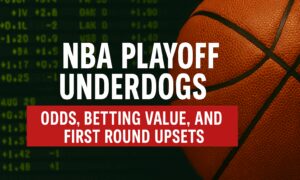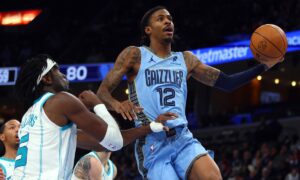Maybe you have forgotten by now, but the NBA is carrying over the play-in tournament that started last year in the bubble. In essence, the seventh and eighth-seeded teams will play a single game, with the winner claiming the seven-seed. The nine and 10-seeds will do the same, with the winner of that matchup taking on the loser of the previous matchup, with the victor claiming the eight-seed.
It’s a new rule that the NBA board of governors passed unanimously back in November. However, Dallas Mavericks owner and super-rich guy Mark Cuban isn’t thrilled with the idea at all anymore, saying, “In hindsight, this approach was an enormous mistake.”
“It doubles the stress of the compressed schedule,” Cuban said. “Rather than playing for a playoff spot and being able to rest players as the standings become clearer, teams have to approach every game as a playoff game to either get into or stay in the top 6 since the consequences…are enormous. So players are playing more games and more minutes in fewer days.”
As much as I enjoy Cuban as an owner and reality T.V. “Shark”, he’s way off here. Here’s why:
Competition increases
As Cuban mentioned, having the seven through 10-seeds taking part in this play-in tournament forces many teams to treat every game with a high level of importance as if it was a playoff game. I ask though, what is so wrong about that?
The NBA has long struggled with the regular season lacking any sort of importance down the stretch. More often than not, I’m ready for the playoffs by the All-Star break, and chances are we know who the title contenders are by that point. But this play-in tournament gives relevance to teams we’d normally never think twice about.
Allowing the nine and 10-seeds a spot in the play-in tournament gives teams below them something to play for as well. With a little under 20 games to go in the regular season, six teams between both conferences are within four games of the 10-seed, so it’s not as if they have nothing to play for over the final stretch.
Rewarding good teams
I liken what the NBA is doing to baseball’s postseason. Excluding the one-off expanded playoffs in 2020, MLB added a second Wild Card team in each league in 2012, where then the two Wild Card teams would play a winner-take-all game to advance to the Divisional Round.
In essence, baseball not only gives more teams an incentive to fight for a Wild Card spot, but they also greatly reward the division winners. As it should be.
I have zero issues with the NBA limiting guaranteed playoff spots to the top-six teams in each conference. Even if the difference between the six and seven-seeds is minuscule, sometimes that’s just the way life goes. They had a good regular season, and they should be rewarded for it.
Cuban’s bias
Is there any doubt in your mind that is Cuban’s Mavericks were sitting in, I don’t know, the 10th spot in the West, he would have a problem with this? Or if they were the one-seed and got to play a team that had to fight for their life not once but twice before facing his squad in a best-of-seven series? Instead, the Mavs are currently in the seven-seed, projected to play the Grizzlies in a play-in game.
Of course, half the teams in the play-in tournament will not be happy about it, while the other half will be thrilled about the opportunity. But there’s an easy solution to never having to worry about the tournament: WIN MORE GAMES.
The Mavericks still have 19 games to go and trail the six-seed Trail Blazers by just 1.5 games. So rather than crying “woe is me” and saying how unfair it is to be roped into this tournament, how about they channel their energy into making up that difference and securing your spot with a six-seed or better.
Understand that I’m about as pro-player as it gets, and it’s obvious that expanding the playoffs to a degree gives the NBA more revenue opportunity, which is in all likelihood their main agenda. But sometimes it’s okay to tell the professional basketball players that they should be playing more competitive basketball when the season winds down, or that they should fight harder during the season to reap the benefits in the postseason.
And trust me, it’s good for the owners and general managers too. They more than anyone need a kick in the you-know-where now and again to remind them that fans want to see competitive basketball. NO one wants to be the team who fails to crack the 10-seed year after year.
So Cuban, who I’m sure is keeping his players’ best interests in mind, is all wrong. Rather than bashing the rule, he should accept it, embrace it, and use it as motivation to get his team to the next level.









